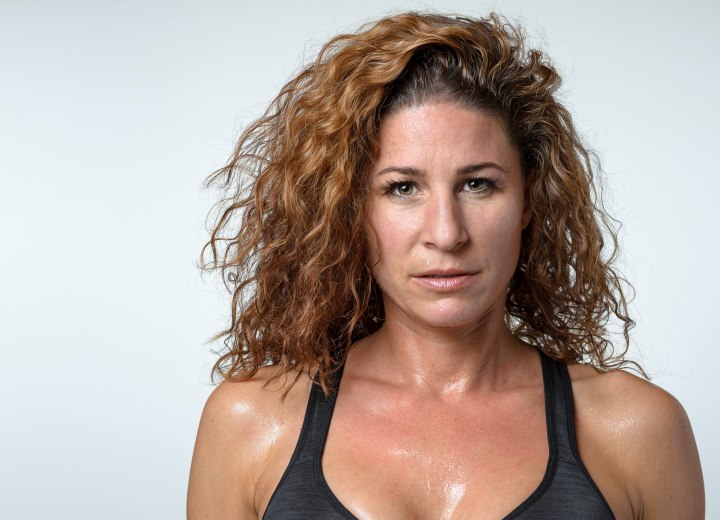Perm & Sweat

A: When you walk out of the salon with a fresh perm, your curls should be stable and properly set if the chemical process was done correctly. However, heading straight to volleyball practice isn't necessarily the best idea.
The famous "three-day rule" exists for good reason. This waiting period allows your hair to fully stabilize after the chemical process of perming. During a perm, your hair goes through an intense process where alkaline chemicals open up the hair's cuticle layer and break down the natural chemical bonds that give your hair its original shape. The neutralizer then reforms these bonds in the new curly pattern created by the perm rods. However, this process doesn't happen instantly, and your hair needs time to fully lock in this new structure.
Some people's hair is more resilient and can handle moisture exposure sooner, while others need the full 72 hours to prevent the curl from loosening or becoming damaged. The individual nature of hair structure, porosity, and chemical resistance means that stylists recommend the three-day rule as a safe standard for everyone, even though not everyone may strictly need it.
There's an additional factor to consider regarding sweat composition. If your sweat is particularly alkaline, it could potentially interfere with the neutralizing process that's still happening in those first few days. In extreme cases, highly alkaline sweat might even weaken the newly formed curl pattern, though this is relatively uncommon.
The more likely scenario is that sweat and moisture will cause the hair cuticles to reopen, which leads to frizz and an uneven curl pattern. When your hair cuticles are open, moisture can enter and exit the hair shaft unpredictably, causing some sections to curl more tightly while others become limp or frizzy.
The ideal scenario is to plan your perm appointment for a time when you can take a few days off from intense physical activity. This gives your hair the best chance to set properly and ensures you'll get the longest-lasting, most attractive results. If timing doesn't allow for this, discuss your concerns with your hairdresser beforehand.
©Hairfinder.com
See also:
Workout with permed hair
Perms and menopausal night sweats
Are there any chemicals in a perm that will be affected by high humidity?